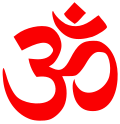Yāska was an ancient Indian grammarian and linguist (7th–5th century BCE). Preceding Pāṇini (7th–4th century BCE), he is traditionally identified as the... 13 KB (1,412 words) - 06:42, 20 March 2024 |
Yusuf Yaska (Kurdish: یۆسف یاسکە, 1592-1636) was a Kurdish poet, considered, along with Mistefa Bêsaranî, to be one of the early members of Gorani poetry... 3 KB (355 words) - 09:55, 27 February 2022 |
 | layer of the Vedic texts. The most celebrated scholar of this field is Yāska, who wrote the Nighaṇṭu (book of glossary), the first book on this field... 14 KB (1,556 words) - 16:27, 25 June 2023 |
study of grammar and linguistic analysis in Sanskrit language. Pāṇini and Yāska are the two celebrated ancient scholars of Vyākaraṇa; both are dated to... 30 KB (3,859 words) - 16:13, 3 September 2023 |
linguistics and modern etymology. Four of the most famous Sanskrit linguists are: Yaska (c. 6th–5th centuries BCE) Pāṇini (c. 520–460 BCE) Kātyāyana (6th-4th centuries... 20 KB (2,514 words) - 21:11, 12 May 2024 |
all nouns (substantives) are derived from some verbal root or the other. Yāska in his Nirukta refers to this view (in fact defends it) and ascribes it... 5 KB (464 words) - 01:35, 19 November 2023 |
Nirukta, written in the 6th or 5th century BCE, the Sanskrit grammarian Yāska defined four main categories of words: नाम nāma – noun (including adjective)... 31 KB (3,600 words) - 20:51, 5 May 2024 |
 | the seers (Rishis). According to the ancient commentator and linguist, Yaska, these ancient sacred revelations were then passed down through an oral... 93 KB (11,184 words) - 21:10, 28 April 2024 |


